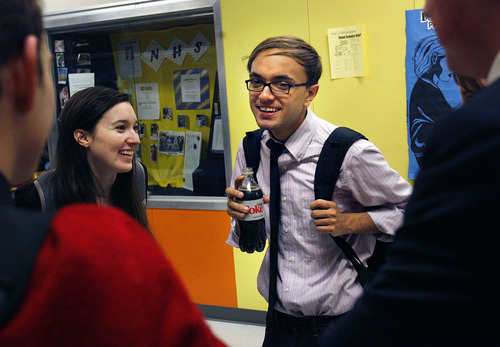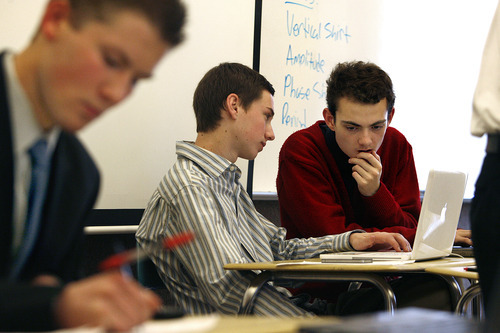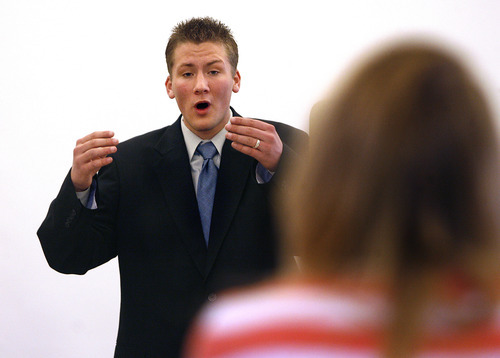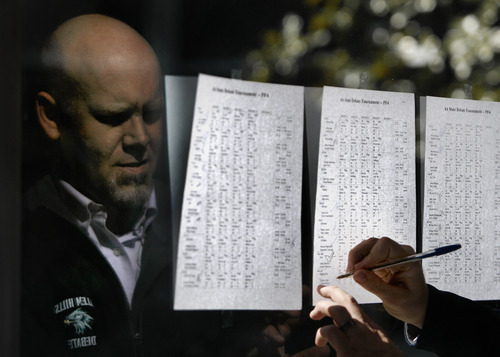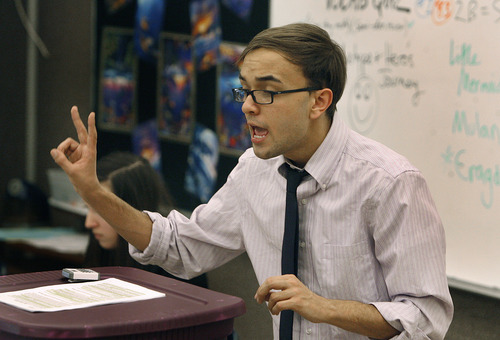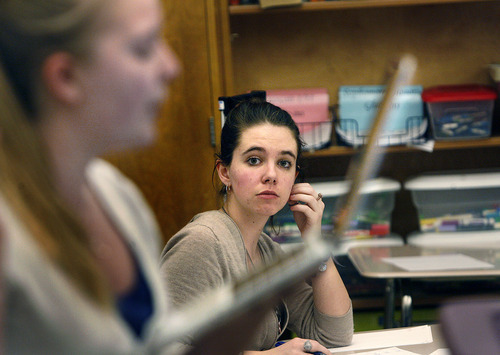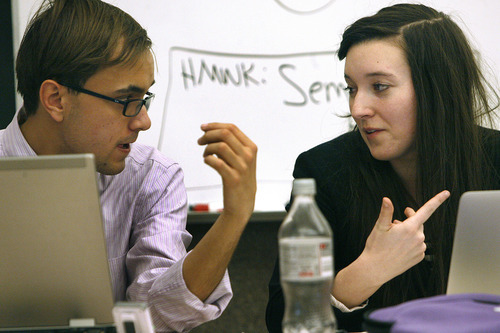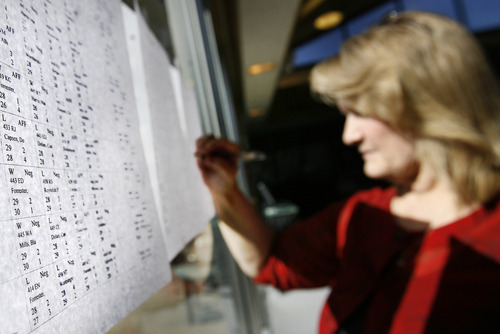This is an archived article that was published on sltrib.com in 2012, and information in the article may be outdated. It is provided only for personal research purposes and may not be reprinted.
Josie White's face lights up as she describes the rush that overwhelms her in the moments after making a "hit." There's euphoria. There's satisfaction.
But the kind of "hit" that gets the East High senior talking isn't the kind you might imagine. Instead, White is talking about the individual matches — "hits" in debate speak — that have kept her coming back to forensics tourneys for four years.
"You have these rounds where — even if you lose — it's like, 'I did a good job,' " White said. "And sometimes you come up with these arguments nobody else comes up with."
White said she initially joined the debate class at East High because her friends were taking the course. She soon realized she had found a home.
"Debate created this community where intelligence was valued," said White, a team captain. "It was a community I could fit into."
And that community, she said, has steered her in the right direction.
"My best friend from middle school started doing drugs and didn't go to college," White said. "I feel like I would have followed her path without debate. Debate made high school worth it for me."
White placed third in the Lincoln-Douglas category at the state forensics tournament earlier this month at Skyline High. Two of her fellow seniors — Carson Eilers and Katelyn Nelson — qualified for the national competition (scheduled in Indianapolis this June) with high honors in the extemporaneous and dramatic interpretive categories, respectively.
East High's policy debate team — Andre Washington and Jessica Oglesby — were crowned state champs for the second consecutive year. Washington, a junior, also won the state title three years ago with a different partner as a freshman.
"It means you're at least among the top couple of debaters in the state, which I think is a really cool honor to have," said Washington of winning the state tournament multiple years in a row. "We've really made a name for ourselves."
Policy debate is arguably the most entertaining of the forensic competition formats. Why? Because of the rapid pace. The goal is to get as many statements on the record as possible in an eight-minute opening statement, which forces the opposition to build a broader rebuttal. They do so by "spreading" — or speed-reading — their points.
"At the start of the season you slow down a little bit, but you never really lose it," said Oglesby, a senior, who estimates she can spout her arguments at 350 to 400 words per minute. "People are always like, 'Where else are you going to use that?' "
"It's the fastest speech in debate," Washington added. "The only way to be competitive is to be fast."
The work students put into their craft is exhaustive — not to mention exhausting. Debate is the longest season of any event sanctioned by the Utah High School Activities Association. Teams begin competing in October and end in March. Washington and Oglesby said they devote up to 60 hours a week to the team.
Cate Praggastis, a language arts and debate teacher at East High, makes a strong case for the merits of debate — from promoting critical thinking to honing research skills to creating a nonpartisan political environment.
"It's a place where scholarly academia is not only valued, but expected," Praggastis said. "Too often sports are celebrated and academics is not. If we started celebrating academics the way we celebrate sports, we'd have a whole new education system."


